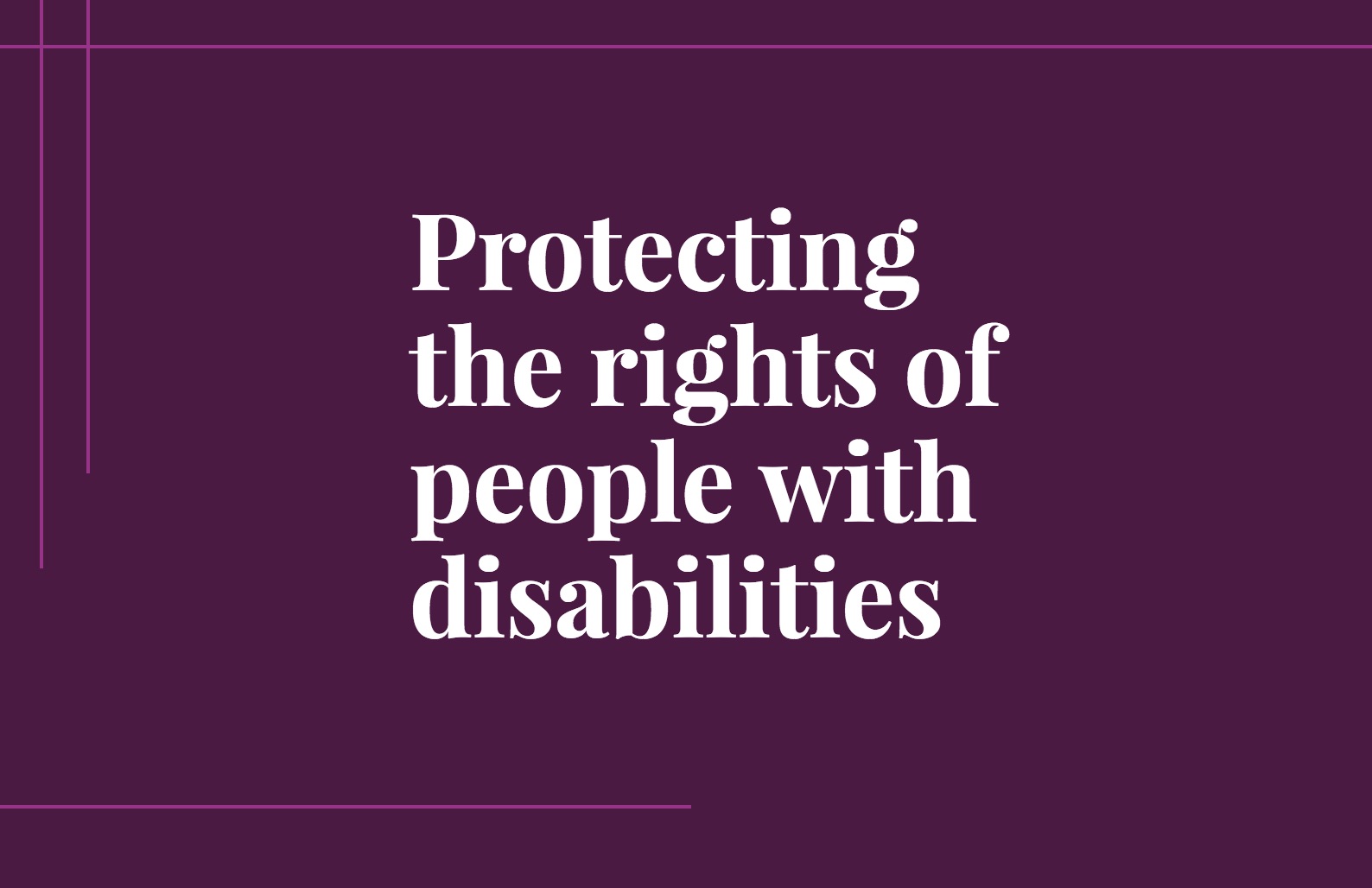A brief explanation of the steps a parent can take if the parent disagrees with school staff about what should be in a student’s Individualized Education Program.
People with disabilities have the right to have their service animals with them in virtually every setting. Business owners and employees have a legal responsibility to accommodate service animals. This video explains those rights and responsibilities.
This packet explains how an individual can petition the court to restore his or her competency. It includes step-by-step instructions, blank sample forms, and a sample petition.
The guide explains the laws surrounding seclusion and restraint, what forms of seclusion or restraint are allowed, and what to do if you or your child has been subject to unlawful seclusion or restraint.
The Americans with Disabilities Act (ADA) provides a mechanism to resolve disability discrimination disputes about access to public entities without having to engage in litigation by filing a complaint in federal court. This guide walks you through the steps.
This investigative report from 2011 looks at North Carolina’s failure to provide services and supports to children who have both a developmental or intellectual disabilities and a mental health issue.
This packet explains the reasons why a guardian may be removed and walks you through the process of petitioning the court to have a guardian removed and replaced. It includes a blank forms and a sample petition.
This 2010 investigation of adult care homes found that young adults with disabilities are trapped in these facilities because of a lack of community-based services.
This 2010 report looks at incidences of restraint in public schools that left students injured, as well as cases of inappropriate seclusion, and makes recommendations for changes to state policy in order to better protect students.
Source: Self-Advocacy Tools | Disability Rights North Carolina
